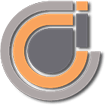I heard from a few folks after the post earlier this month in regards to other resources for structuring facilitated dialogues, particularly around asking powerful questions. Here is one of my favorite approaches to explore right now. I’ll be back early in 2018 with a second awesome resource. Enjoy!
And remember, facilitation is one of those wonderful growth mindset continuums: we should be confident in our approach and abilities of today, but know that there are always new horizons to reach and new skills to master.
1. Learn-Be-Do
John Williams of Coach Traing EDU speaks of this almost magical methodology in his coach training guides. Learn-Be-Do is a three-part approach to asking questions designed specifically for coaches, but I think it works incredibly well for facilitators generating reflective dialogues. I’ve adapted this approach to several different meetings and trainings recently, and have been more than happy with the results of asking these types of powerful questions.
First, recognize that Learn-Be-Do helps a facilitator enter into a place of constant inquiry with ease, allowing the participants to deepen their thought process and create their own discovery. With this method, the facilitator should not seek to teach skills nor inform participants of what they should do in their particular experience. Instead, the questions asked empower participants towards learning and new insights.
The questions shown here are merely a few examples of how a facilitator allows a participant to create their own learning from their individual experiences. The majority of time will be spent in the Learn and Be categories, shifting back and forth between the two. Though the conversation will naturally lead into the ‘Do/Action’ category (as everyone is often eager to ‘do something about it’), it is good to float back into the Learn and Be questions as a facilitator, as this is often where the most keen insights arise to power even more meaningful actions.
Learn: What questions are you asking yourself about that experience you just had? What did you learn from your experience? What are the holes or gaps in your knowledge or understanding? What information do you want to explore deeper? What did your reaction or your emotions teach you? Where do you expect to Be upon taking action on your learning or with your new insights?
Be: What is your present emotional or intellectual state given this learning? What are your triggers when it comes to this material? What emotions are you feeling as you react to this material or experience? Who are you being in this moment? How are you showing up? What was your reaction to that situation? What was the first thing you said?
Do: What are your next steps given this experience and what you’ve learned from it? What actions have you taken already to better understand your experience? What other actions will you take to understand and utilize your experience? What are the outcomes you most want? What’s the most important path forward to get to those outcomes? What motivates you to take those actions?
What questions have come to mind for you?

